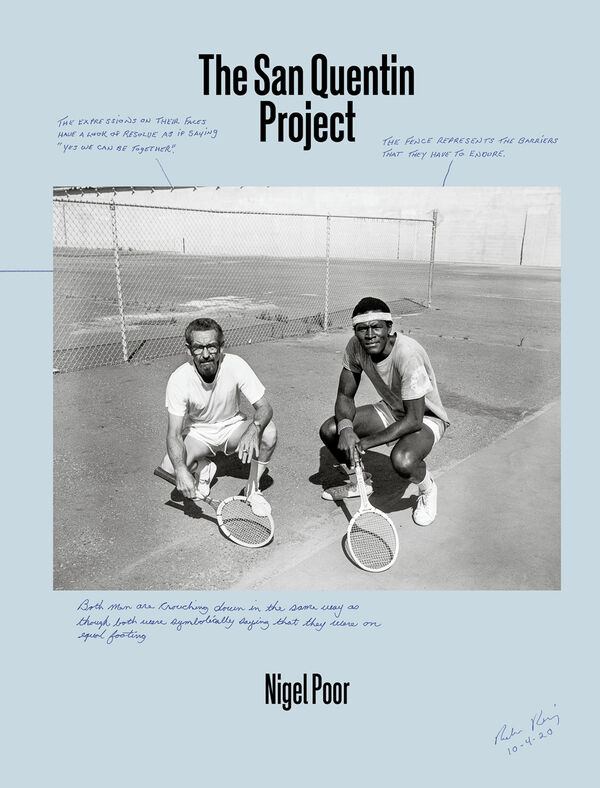Kontakt
art book cologne GmbH & Co. KG
Deutzer Freiheit 107
50679 Köln
Germany
Öffnungszeiten Büro und Showroom:
Montag-Freitag von 8-17 Uhr
info@artbookcologne.de
Tel.: +49 221 800 80 80
Fax: +49 221 800 80 82
Über uns
Seit 1997 sind wir Großhandel für hochwertige Publikationen der Gebiete Kunst, Kunsttheorie, Kunstgewerbe, Architektur, Design, Fotografie und illustrierte Kulturgeschichte. Unser kleines Team setzt sich aus den Fachgebieten Kunst, Kultur, Musik, Buchhandel und Medien zusammen und hat bei aller Vielfalt einen gemeinsamen Nenner: Die Begeisterung für schöne Kunstbücher.
Der Schwerpunkt unserer Tätigkeit liegt in der Übernahme von Restauflagen von Verlagen, Museen und Kunstinstitutionen. Wir bieten diese Titel dem Sortiments- und Versandbuchhandel, den Museumsshops und dem Kunsthandel an.
The San Quentin Project
| Verlag | Aperture |
| Jahr | 2021 |
| Einbandart | Fester Einband |
| Sprache | Englisch |
| ISBN | 978-1-59711-492-9 |
| Seiten | 168 |
| Gewicht | 998 g |
| Mehr | |
| Beiträge von | Reginald Dwayne Betts, George Mesro Coles-El, Rachen Kushner et al. |
| Artikel ID | art-61542 |
The San Quentin Project collects a largely unseen visual record of daily life inside one of America’s oldest and largest prisons, demonstrating how this archive of the state is now being used to teach visual literacy and process the experience of incarceration. In 2011, Nigel Poor—artist, educator, and cocreator of the acclaimed podcast Ear Hustle—began teaching a history of photography class through the Prison University Project at San Quentin State Prison. Neither books nor cameras were allowed into the facility, so an unorthodox course with a range of inventivemapping exercises ensued: students crafted “verbal photographs” of memories for which they had no visual documentation, and annotated iconic images from different artists. After the first semester, Poor says, “one student told me he could now see fascination everywhere in San Quentin.” When Poor received access to thousands of negatives in the prison’s archive, made by corrections officers of a former era, these images of San Quentin’s everyday occurrences soon became launchpads for her students’ keen observations. From the banal to the brutal, to distinct moments of respite, the pictures in this archive gave those who were involved in the project the opportunity to share their stories and reflections on incarceration.










